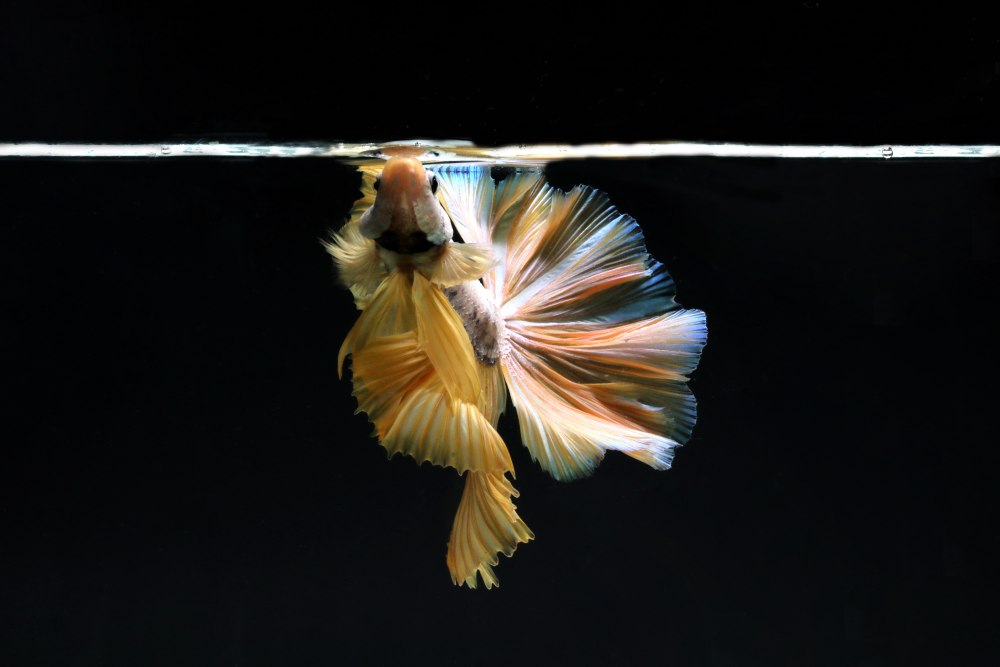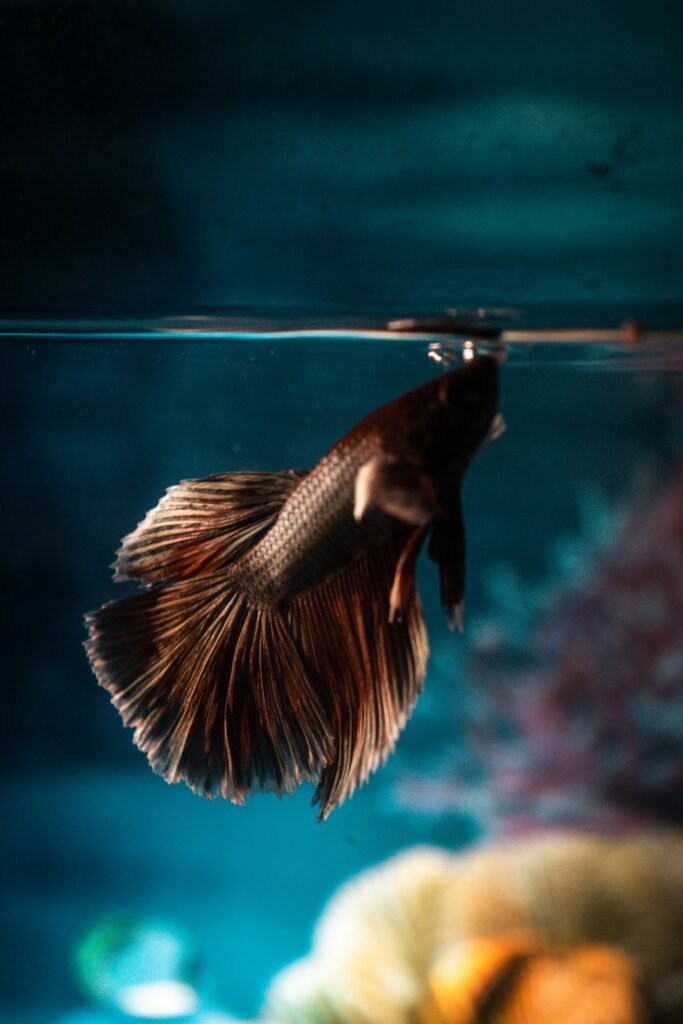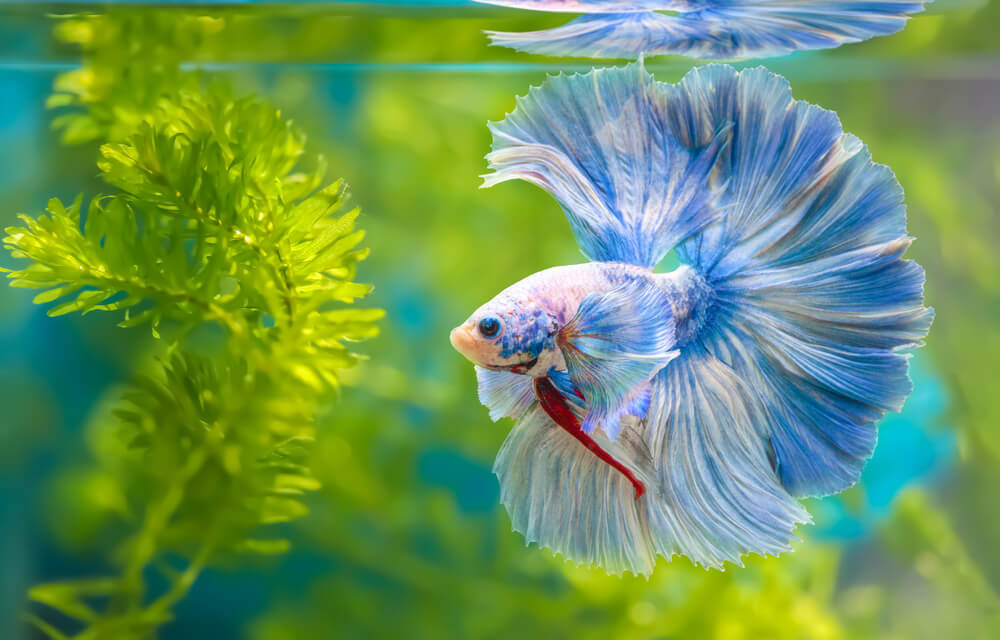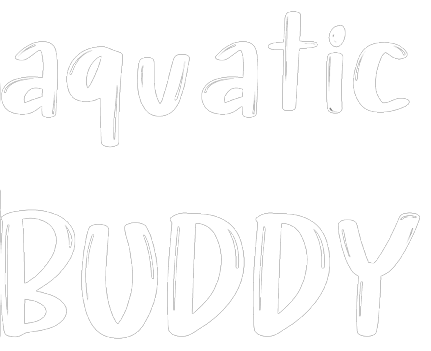Aquarists often wonder: how often should I feed my betta fish? Maintaining a balanced diet is extremely important as it directly impacts betta’s health.
Apart from knowing what to feed a betta fish, you must know the quantity and proper timings of feeding. In this guide about betta fish feeding habits, we will discuss everything about betta fish feeding routine, which food they like, and the quantity they require to remain healthy and happy.
What to feed your betta fish

Providing a nutritious diet is extremely important to keep the betta fish healthy and stress-free. For that, you must know what betta fish eat and what they like the most. Bettas are tropical fish, and these carnivorous species mostly eat insects.
When you get the betta for your aquarium, you need to provide it with a natural diet. You must ensure that betta’s diet comprises of protein, fiber, carbohydrates, fat, vitamins, calcium, and phosphorus.
Here are some of the food types that have all these substances, which the fish enjoys as well.
Live foods/froze foods

Live food is one of the best treats for your betta. Live foods include insects like blood worms, brine shrimp, and daphnia. These come in a freeze dried, frozen, and living forms.
Betta fish love feeding on blood worms, and it is a protein rich food. You can keep them frozen at your home freezer and just defrost them before feeding. Giving frozen food to the fish can make them sick, so always defrost first.
Mosquito larvae are another live food to feed a betta fish. Betta’s food includes a lot of mosquito larvae in their natural habitat; hence giving them the same in the aquarium will keep them healthy. Mosquito larvae are readily available in the pet store, so you won’t have any difficulty in finding them.
Living food provides excellent nutrition to betta fish, but living foods also have drawbacks. Since they are living insects, they can spread infections. Betta fish are prone to catch disease easily; therefore, if you are feeding living food, make sure to get them from a trusted source, like a farm or a reputable fish store.
You can also buy eggs of these living food and hatch them yourself, that way, you can ensure you feed your betta safe live food.
Fish flakes
Another healthy food to provide your Betta fish is fish flakes. Flake foods are rich in Omega 3 and 6, which help maintain the overall health of the fish. Fish flakes also contain beta carotene, which is a natural color enhancer.
Freeze dried food
Freeze dried foods are a great source of protein which is beneficial for aquarium fish. Freeze dried foods like mosquito larvae, insect larvae, and mysis shrimp, are widely available in all pet stores, so you can stock up as much as you need. But only defrost necessary quantities at a time so that there is less wastage.
Pellet food
You can feed betta fish pellets to keep a healthy betta. You get different fillers for betta pellets, and the best ones are those with few fillers. Pellets have high nutritional value, ensuring a healthy growth for young bettas.
You can soak the pellets outside the aquarium water because pellets sometimes can expand when soaked. You don’t want them to grow in your betta’s digestive tract which may happen if you soak it inside the aquarium. Although, this isn’t necessary and you don’t need to soak your pellets before feeding your betta fish.
Human feed you can feed a betta fish
Apart from fish food, there are other human food items you can feed a betta fish. However, sometimes people don’t know which human foods they should feed their betta fish. You need to ensure whatever food you are feeding should provide the fish with nutritional benefits. Here are some of the human food items that you can feed your betta fish.
Shrimp and tuna
These will provide essential nutrients to betta fish, but these should be given raw without seasoning. If feeding tuna, get fresh tuna and avoid canned tuna packed in oil.
Sweet corn
You can feed boiled corn kernels once in a while, but only give one kernel at a time. It’s best to break it up into smaller bits.
Leafy greens
Leafy greens like spinach and lettuce are suitable for your pet betta. Boil them until tender and then feed them to the fish.
Mango
Betta’s love having mangos as well, so you can give it to the fish once in a while. Remove any leftover mango piece from the fish tank water immediately, as leftovers can be fatal for the fish.
Peas
Peas are rich in fiber so giving it occasionally is good for betta’s diet. Moreover, peas can relieve the betta of bloating or constipation.
What not to feed your betta fish
Plants
Bettas are carnivorous fish, so feeding them plants as a regular diet won’t provide the protein they need, and ultimately they might die due to lack of protein. Also, avoid stingy vegetables and fruits like bananas, beans, and carrots.
Citrus fruits
Citrus fruits will lower the pH level in the aquarium, making the water acidic, which is harmful to the betta fish.
Bread
Bread has no nutritional value for betta fish, so you give nothing but a bloated stomach to the fish by feeding bread.
Farm grown meat
Betta fish are not used to eating farm-grown meat like chicken, beef, or pork.
How Often to Feed Betta Fish?

Betta fish’s stomach is just the size of an eyeball; hence it does not need multiple feedings. The betta fry can lead a healthy life with just two feedings a day: one in the morning and another in the evening.
This also differs for baby betta fish and adult bettas. Some adult betta fish can live on only one feeding a day. But the baby fish will need two small portions as they are growing rapidly. Besides, the young betta needs more protein and fats than an adult betta, so you have to plan your pet’s diet accordingly.
Some people have the bad habit of throwing food whenever they interact with their fish, but that can be unhealthy for the fish. Like other fish, bettas love eating, but they don’t need more than two small portions a day, so avoid giving them too much food.
There are automatic fish feeders available in the market, which you can place in the fish tank if you are away from home for long periods of time. You can also get a vacation feeder, which comes in multiple sizes like two days, seven days, or 14 days vacation.
How much food does my betta fish need?
A betta fish needs a standard portion of 1.8g of food every day regardless of the food type. But the portion may vary depending on how bloated the fish looks. If it looks normal, you can provide as much food as you provide daily, but if it looks bloated, reduce the quantity.
Providing the exact quantity of food again can be difficult every day. In that case, you can try using a weighing machine for the initial days. If you are using pellet betta food, there can again be confusion as to how many pellets you should feed a betta fish.
For pellets, you should give no more than two to four pellets once or twice a day. Pellets also expand when you soak them in water, so they keep the fish full for longer durations. But it’s not necessary to soak the betta pellets every time you feed as it may decrease its nutritional value.
Also, it’s completely fine even if the betta fish skips a meal. These are wild tropical fish, so they are used to skipping meals. Betta’s have small digestive tracts so allow them the time to eat. Just don’t make it a habit of forgetting to feed your betta.
You also should replace the betta fish food container every six months, even if the betta fish does not finish the whole container. Moreover, don’t feed your betta excess food as uneaten food in the fish tank can ruin the water quality.
Built up food in the tank may lead to toxin build up and increase the nitrate and ammonia levels.
Do baby betta fish need a different diet?
To ensure baby bettas get full nutrition and grow up to healthy fish, you should include diverse food items in the baby betta fish’s diet. You can feed a particular food type to grown-up bettas, but fry need a healthy diet.
Food items to include in the baby betta’s diet are tubifex worms (both live and freeze dried), frozen bloodworms, live blackworms and white worms, and betta freeze dried food like crushed pellets, and shrimps.
Grow Your Own Live Food
As betta fish’s growth is largely dependent on the food you provide apart from the aquarium environment, you can try growing your live food for the fish. Brine shrimp, blood worms, daphnia are three major live foods to provide to keep your pet healthy. Here is how you can grow them at your home.
Brine shrimp
Take any plastic bowl or bucket with aerated water. You can aerate the tank water with an air stone, or air pump add some aquarium salt. Leave the water for 12 hours before you add the brine shrimp eggs. The eggs take anywhere between 12 to 48 hours to hatch, and in about six weeks, these get matured.
Blood worms
Growing blood worms at home is simple. All you need to do is take a bucket full of dechlorinated water with soil and dead leaves. Leave the bucket in an open area, and over time, midge flies would lay eggs in the bucket, which would hatch into blood worms. When these grow about two inches long and red, they are ready to feed a betta fish.
Daphnia
Fill a bucket with dechlorinated water and leave it for about two days before you add the daphnia eggs. Once the eggs hatch, they are ready to become betta food in about two weeks.
Wrapping up
Proper feeding is an essential part of caring for a betta fish. You can feed your betta a combination of frozen food, freeze dried food, live food, flake food to keep the betta healthy. But as a betta keeper, you must be aware of how much food or how often to feed betta fish. Betta’s have a very small stomach, so too much food will only damage its digestive tract.
